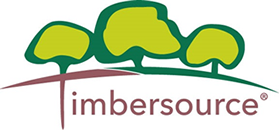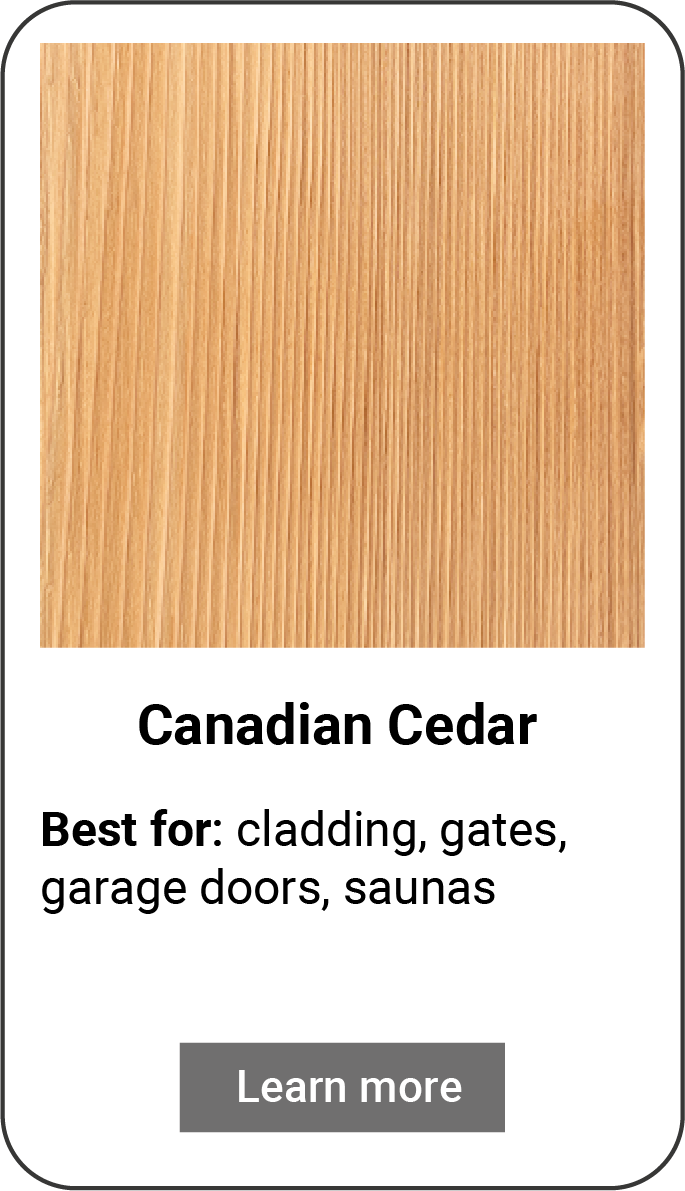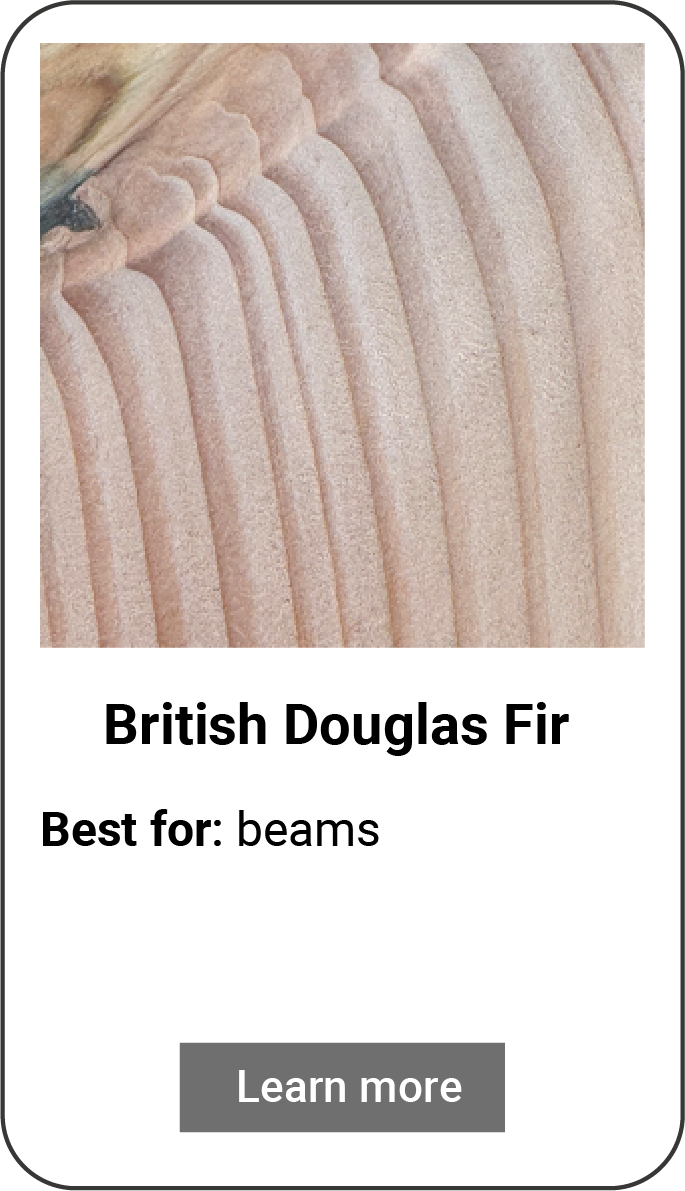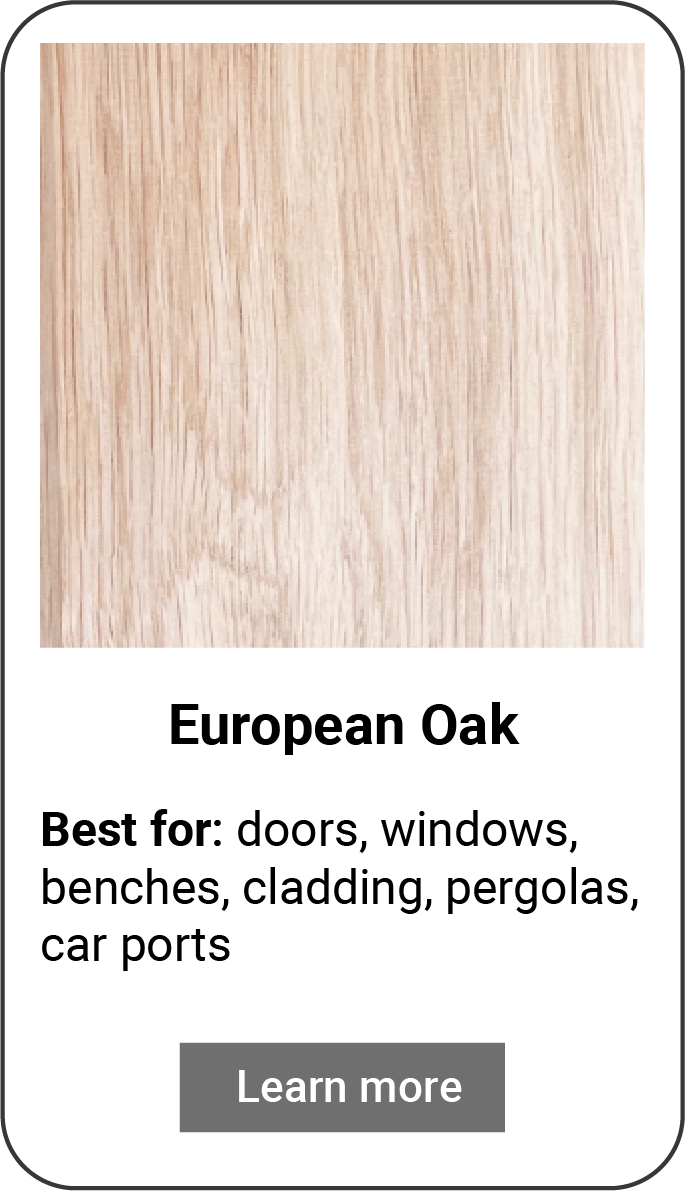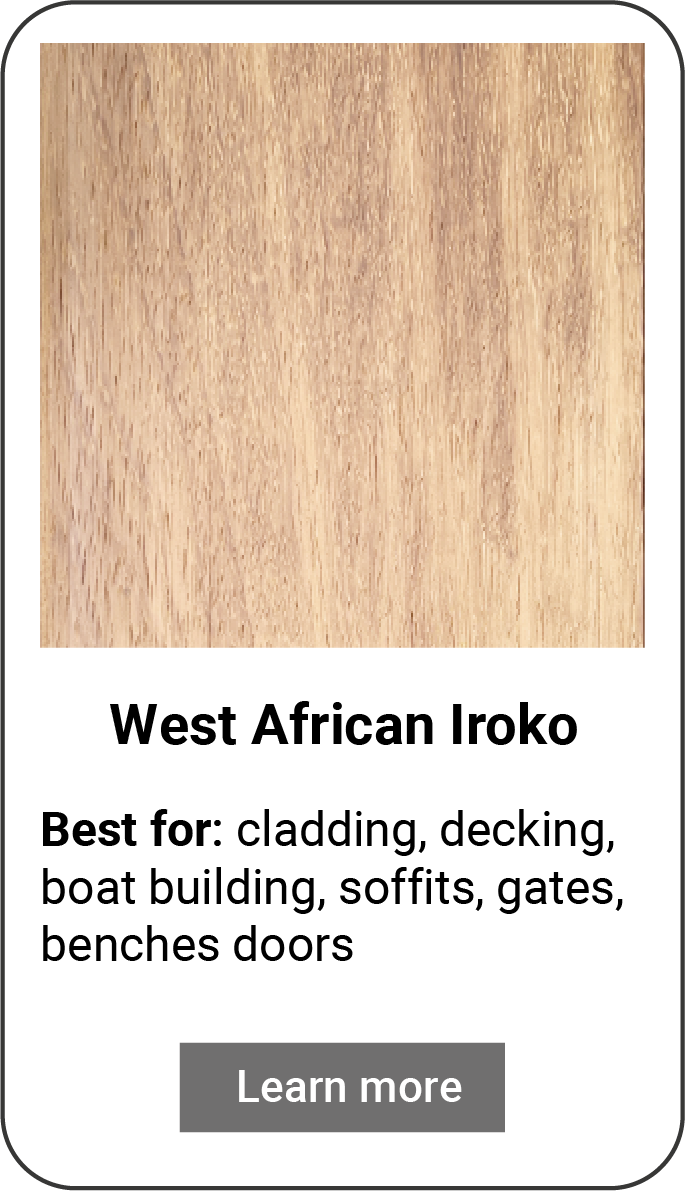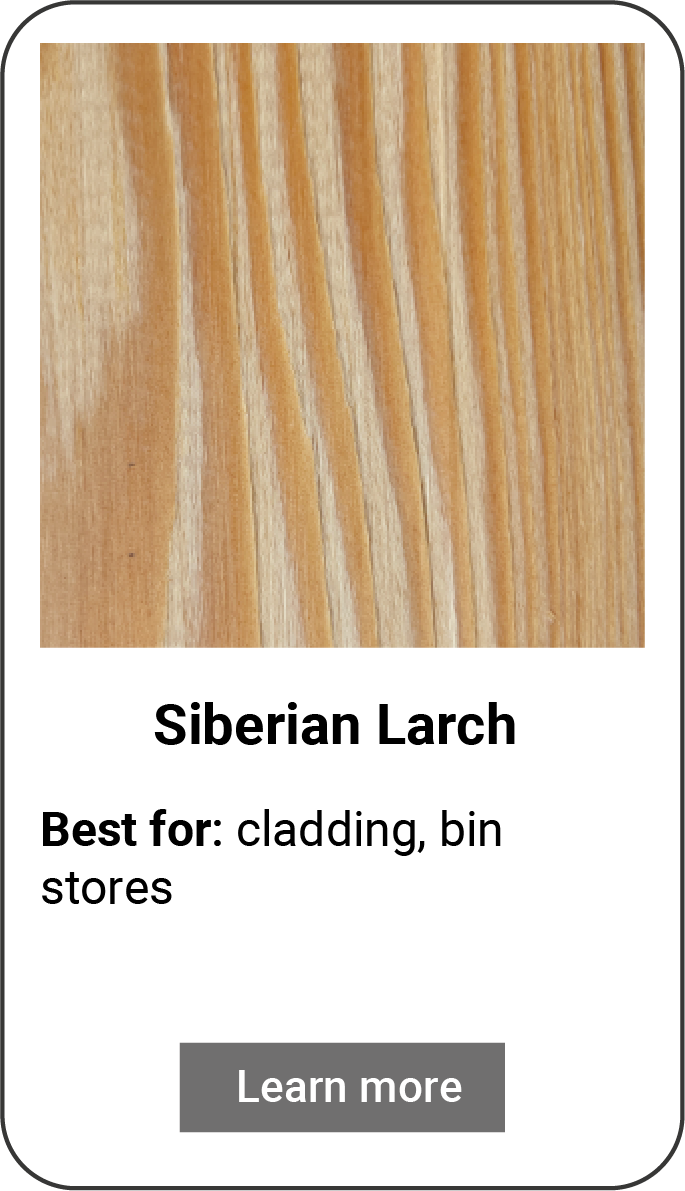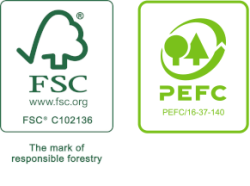Find My Timber
Outdoors > Not Painted > Light Colour > Timbers
Why is Canadian Cedar good for outdoors?
Canadian cedar is the king of outdoor timbers. It is incredibly resiliant to all weather conditions and despite being so lightweight and soft it is very strong and durable. Its stability in all weathers is second to none and doesnt move, twist or split when it seasons. Canadian cedar is highly regarded for cladding and slatted fence screening as well as canoe making.
Why is British Douglas Fir a good outdoor timber?
British Douglas Fir is very resiliant to outdoor conditions. It also doesnt splinter as much as other timbers. It is best used outdoors for beams and posts on softwood pergolas or lean-tos.
Why is European Oak good for outdoor use?
European Oak, specifically French, German, Croatian, is a lot more durable externally out of the oak varieties as it grows in more cold and wet conditions. It has a course and dense grain structure and will last longer outdoors. It is used very effectively for structural posts and beams on pergolas, car ports and barns as well as decorative elements such as cladding and doors.
Why is iroko good for outdoor use?
Iroko trees have evolved in very wet climates and has a large amount of natural oil combined with course and dense grain structure. This makes iroko incredibly durable for outdoor use. Iroko can be left untreated and will last over 30 years outdoors which makes this a great low-maintenance timber. UV protection oils can be used to preserve the natural colour of the timber. Iroko is commonly used for pergolas, cladding, decking, garden screens, boat building and more.
Why is Siberian Larch good for outdoors?
Siberian larch grows in the northern hemisphere in brutally cold and icy winters but surprisingly sunny hot summer spells. These huge contrasts in temperature and moisture have made it evolve in its resiliance. It has a resinous quality which gives it its notable durability. Its not as stable as Cedar and can cup, twist, expand and contract and it has more knot content. With sanctions on Russia this timber is currently limited in availability so either North American Douglas Fir or British Larch maybe viable alternatives.
